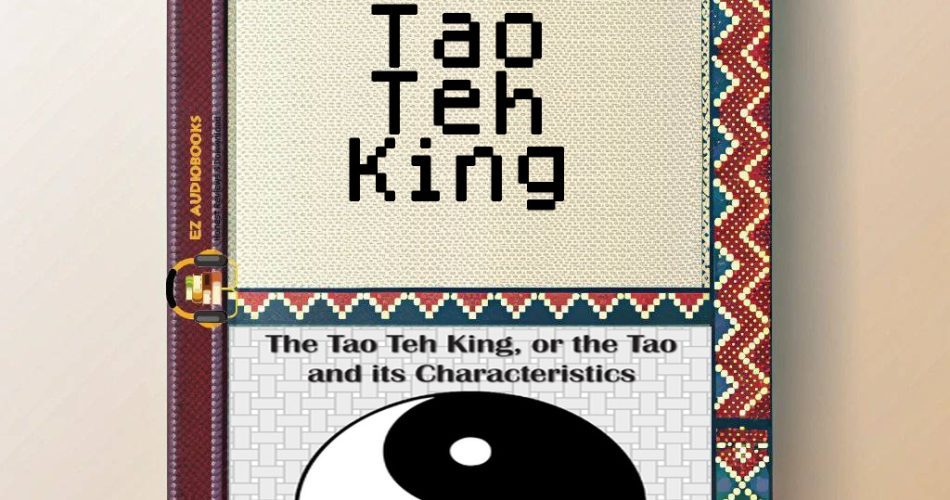Audiobook Sample
Listen to the sample to experience the story.
Please wait while we verify your browser...
- Title: Tao Teh King
- Author: Laozi
- Narrator: Eric S. Piotrowski
- Length: 01:35:07
- Version: Abridged
- Release Date: 01/01/2016
- Publisher: LibriVox
- Genre: Science & Technology, History
- ISBN13: SABLIB9782269
Through a cultural lens, Laozi’s “Tao Teh King” emerges as a timeless whisper from ancient China, a text that has guided philosophers, poets, and everyday wanderers for centuries. As I settled into the audiobook version, narrated by Eric S. Piotrowski and freely available through LibriVox, I found myself transported – not just to the Warring States period where this work took root, but to moments in my own life where its teachings echoed with quiet resonance. What fascinates me most is how this slim volume, clocking in at just over 5,700 seconds of listening time, unfurls a universe of thought within its brevity.
This audiobook experience arrived at a serendipitous moment. Years ago, during my time as a visiting professor in Tokyo, I stumbled upon Haruki Murakami’s “Kafka on the Shore”. Reading it in both Japanese and English revealed how language shapes perception – an insight that resurfaced as I listened to Laozi’s paradoxes unfold in Piotrowski’s steady voice. The “Tao Teh King” thrives on dualities – strength and weakness, presence and absence – and hearing it aloud felt like a meditation on balance, a theme that has shadowed my own academic journey. Similarly, I recall a semester at Berkeley leading a Contemporary Fiction seminar, where we dissected how medium alters narrative. Comparing “Cloud Atlas” across print, digital, and audio formats sparked revelations about engagement – revelations that resurfaced as I absorbed Laozi’s wisdom through this listening experience.
The “Tao Teh King” is, at its core, an exploration of the Tao – the Way – an ineffable force that underlies all existence. Its 81 brief chapters weave a tapestry of “wu wei” (non-action), humility, and harmony, urging listeners to shed artificial distinctions and embrace the natural flow of life. Laozi’s insights into leadership – subtle, unassuming, yet profound – resonate as both practical wisdom and intellectual framework, a duality that appeals to my fascination with cross-cultural narratives. The text’s historical roots in the 4th century BC, evidenced by excavated bamboo slips, only deepen its allure, bridging science, technology, and history in a way that feels both ancient and urgent.
Eric S. Piotrowski’s narration enhances this journey. His delivery is clear and deliberate, allowing Laozi’s paradoxes to breathe without imposing undue flourish. The audio quality, crisp and unadorned, suits the text’s minimalist ethos – there’s no distraction, only the words and their weight. At just over 95 minutes, the audiobook’s brevity mirrors the text’s own economy, yet Piotrowski’s pacing ensures each aphorism lingers long enough to provoke thought. This reminds me of when I first encountered Taoist ideas in Mandarin during my graduate studies; the simplicity of the language belied its depth, much as this narration does.
Yet, no work is without its nuances. The “Tao Teh King”’s strength lies in its universality – its influence stretches from Chinese philosophy to Western spirituality, making it one of the most translated texts globally. However, its authorship remains a scholarly enigma, and some listeners might yearn for more historical context within the audiobook itself. Piotrowski’s performance, while admirably restrained, occasionally feels too neutral; a touch more inflection could highlight the text’s poetic rhythm, especially for newcomers to Taoist thought. Still, these are minor quibbles in an otherwise compelling free audiobook experience.
How does it compare? The “Tao Teh King” shares DNA with the “Zhuangzi”, another Taoist gem that expands on “wu wei” with a playful flair Laozi lacks. The “Analects” of Confucius, meanwhile, offer a counterpoint – structured virtue versus fluid harmony. Yet, Laozi’s focus on the Tao as a cosmic principle sets it apart, a distinction that shines through in this audio format. For those drawn to science and technology, the text’s emphasis on natural systems might even evoke parallels to modern ecological thought – an unexpected bridge I often explore in my digital humanities work.
Who might savor this listening experience? I’d recommend it to students of philosophy craving intellectual nourishment, to history buffs intrigued by ancient wisdom, or to anyone seeking a meditative pause in a frenetic world. Its free availability through LibriVox is a gift – democratizing access to a text that’s both a cultural artifact and a living guide. Pair it with a quiet evening and an open mind, and you’ll find the Tao whispering back.
Reflecting on this audiobook, I’m struck by its quiet power. It’s not just a relic of the past but a mirror for the present, reflecting my own curiosity about how stories – and their delivery – shape us. The “Tao Teh King” invites us to listen, not just to its words, but to the silences between them. And in Piotrowski’s capable hands, that invitation feels both accessible and profound.
With appreciation for the Way and its echoes,
Prof. Emily Chen

